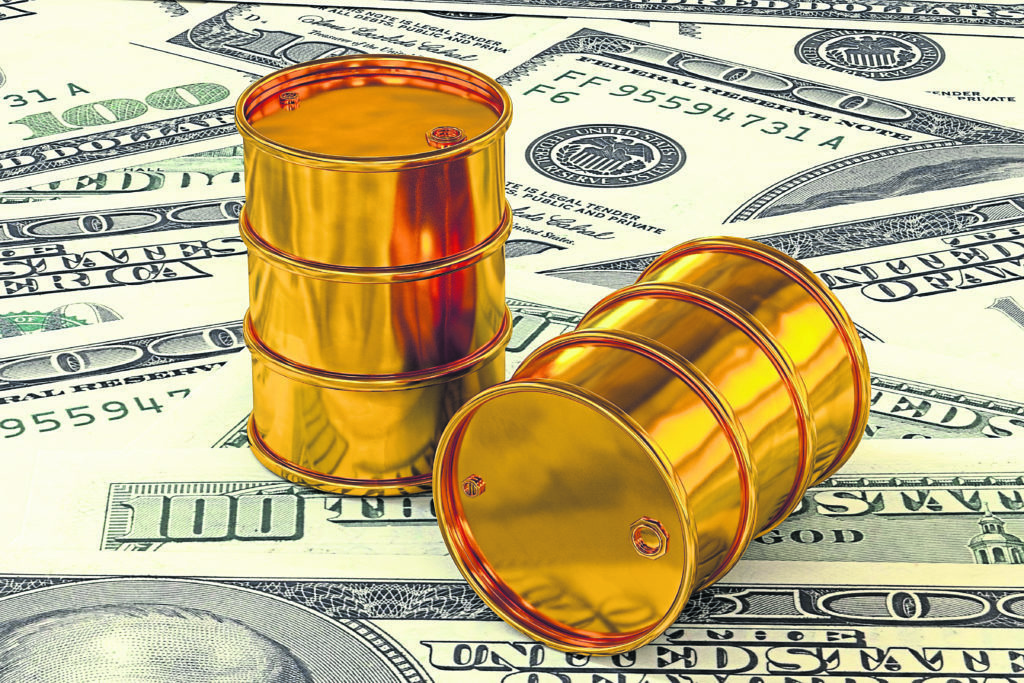
Brent oil advanced above $70 a barrel after the OPEC+ alliance forecast a tightening global market ahead of a production policy meeting.
Futures in London rose as much as 1.5% after posting a second straight monthly gain.
The oil glut built up during the pandemic has almost gone and stockpiles will slide rapidly in the second half of the year, according to an assessment of the market from an OPEC+ committee.
The coalition is expected to ratify a scheduled output increase for July when it meets later Tuesday.
A robust recovery in the U.S. and Europe has given OPEC+ the confidence that markets can absorb additional barrels, despite the prospect of more supply from Iran should a nuclear deal be revived, and a Covid-19 comeback in Asia, most notably India.
OPEC’s Joint Technical Committee forecast stockpiles will fall by at least 2 million barrels a day from September through December.
“There’s some confidence right now improving demand should be able to absorb what could be an additional 2 million barrels a day from Iran, if it materializes,” said Howie Lee, an economist at Oversea-Chinese Banking Corp.
“Demand from the U.S. has been driving the global consumption recovery.”
Prices
- Brent for August settlement rose as much as 1.5% to $70.35 a barrel on the ICE Futures Europe exchange before easing slightly to $70.28 at 7:29 a.m. London time.
- Front-month futures rose 3.1% in May.
- The prompt timespread for Brent was 39 cents in backwardation, compared with 9 cents at the start of last week.
- West Texas Intermediate for July climbed 2.1% to $67.72 on the New York Mercantile Exchange from the Friday close.
- There was no settlement Monday due to a U.S. holiday.
- A weaker dollar also helped to push oil higher on Tuesday.
Market fundamentals are strong and oil prices could climb to $80 a barrel by the middle of the third quarter in the absence of Iranian supplies, Fereidun Fesharaki, the chairman of industry consultant FGE, told Bloomberg Television.
Iran’s comeback “will occur in an orderly and transparent fashion,” causing no upset to the stability that other OPEC+ nations have toiled to achieve, OPEC Secretary-General Mohammad Barkindo said at the Monday meeting.
However, Iranian Oil Minister Bijan Namdar Zanganeh told reporters in Tehran that the nation could bring back crude output rapidly.
“The market has clearly tightened up, the strategy that OPEC has played out here is working,” Wayne Gordon, a strategist at UBS AG Wealth Management, said in a Bloomberg Television interview.
“We expect that crude oil prices will be at least trading as high as $75 as we go into the start of next year.”
Asian refiners, meanwhile, are grappling with what’s expected to be a brief period of weak profits amid the demand-sapping virus resurgence.
Complex refining margins in Singapore, a proxy for the region, have slumped since the end of April, but accelerating vaccination rates are expected to aid demand.
Other market news:
- Exxon Mobil Corp. is pulling out of a deep-water oil prospect in Ghana just two years after the West African nation ratified an exploration and production agreement with the U.S. oil titan.
- Nigeria’s state-owned energy company said it’s considering purchasing shares in at least six privately controlled refineries in the West African nation to conform to a government directive.
Recommended for you
